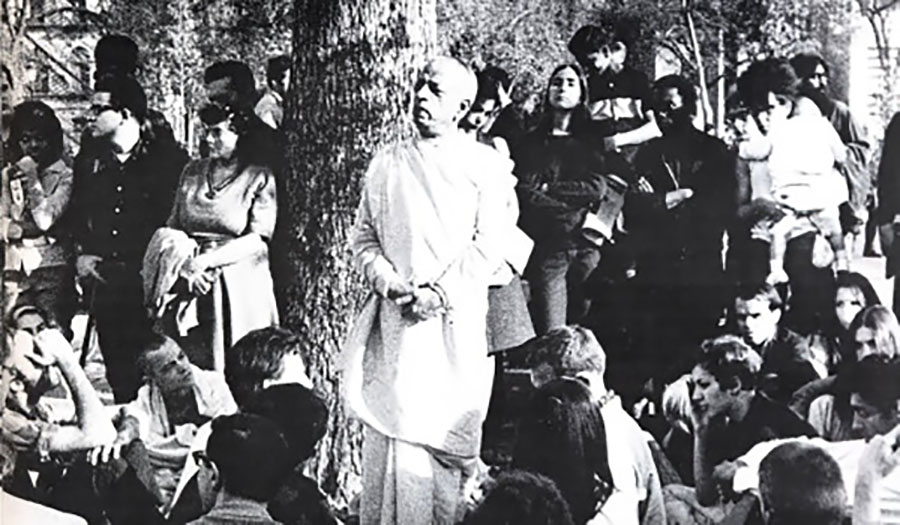ISKCON 50 Meditations: December 28, 2016
By Satsvarupa dasa Goswami | Dec 28, 2016

Uncompromising
Prabhupada’s uncompromising nature is much of what attracted us to him. It’s not that everyone who came to spiritual life was a perfect connoisseur of spiritual topics or such a penetrating truth-seeker that he couldn’t be cheated. But Prabhupada made us feel safe. Prabhupada himself said that many of us came to him out of sentimentality. Of course that was still good, but if we didn’t become serious, we would fall away. His uncompromising nature helped us to become serious and to get past whatever sentimental reasons made us seek him out in the first place.
Then Prabhupada said that to practice spiritual life you have to rise above the modes, especially the modes of ignorance and passion. Again, he was uncompromising. He said we wouldn’t be able to talk about spiritual life until we rose above those two modes. How can one practice spiritual life and at the same time cultivate lust and greed? Therefore he told his students from the beginning that we had to give up illicit sex, intoxication, meat-eating and gambling.
Prabhupada wanted to communicate with his sincere followers as humanely as possible, yet he was uncompromising. He didn’t care whether people’s superficial interests were satisfied or not. He spoke the truth; what was good for people and would actually delight them in their constitutional nature. And he wasn’t bored with his own presentation. He was always enthusiastic in his preaching. You can hear it in the early tapes. Prabhupada would be speaking enthusiastically and philosophically and then suddenly pause as if seeing the blank faces of his audience. “Oh, of course, this is a very dry subject. People will think we are talking about God and it is so much philosophy.” Then he would chuckle, realizing that for a New York crowd to gather and not hear music or something more immediate, sensational, controversial or attractive to the lower modes of nature, was unusual. He couldn’t expect to be too popular. He chuckled and he realized it, but he went forward anyway with his kirtana and his preaching. He did it because that’s what Krishna wanted. He wasn’t interested in pleasing the crowd. He wrote in one letter: “The kirtana is not to please a crowd. The lecture is for Krishna and for some sincere persons. No matter if nobody comes, you speak to the walls. We are Krishna dasa; we are Guru dasa.”
Krishna conscious purification is deep. Prabhupada recognized that those who were coming for some superficial titillation would find the topics dry. Therefore, few are interested. He knew that hearing only the outer form of Krishna consciousness is difficult—it sounds too much like theological talk. People are more accustomed to listening to things that attract their material senses—nice music, a speaker with good intonation, etc.—and they don’t get that gratification when the speech is full of foreign words, talk of sin and God consciousness and morality. When a devotee starts to describe the misery of material life and how we are all entangled in it, it can seem remote. They fly away.















